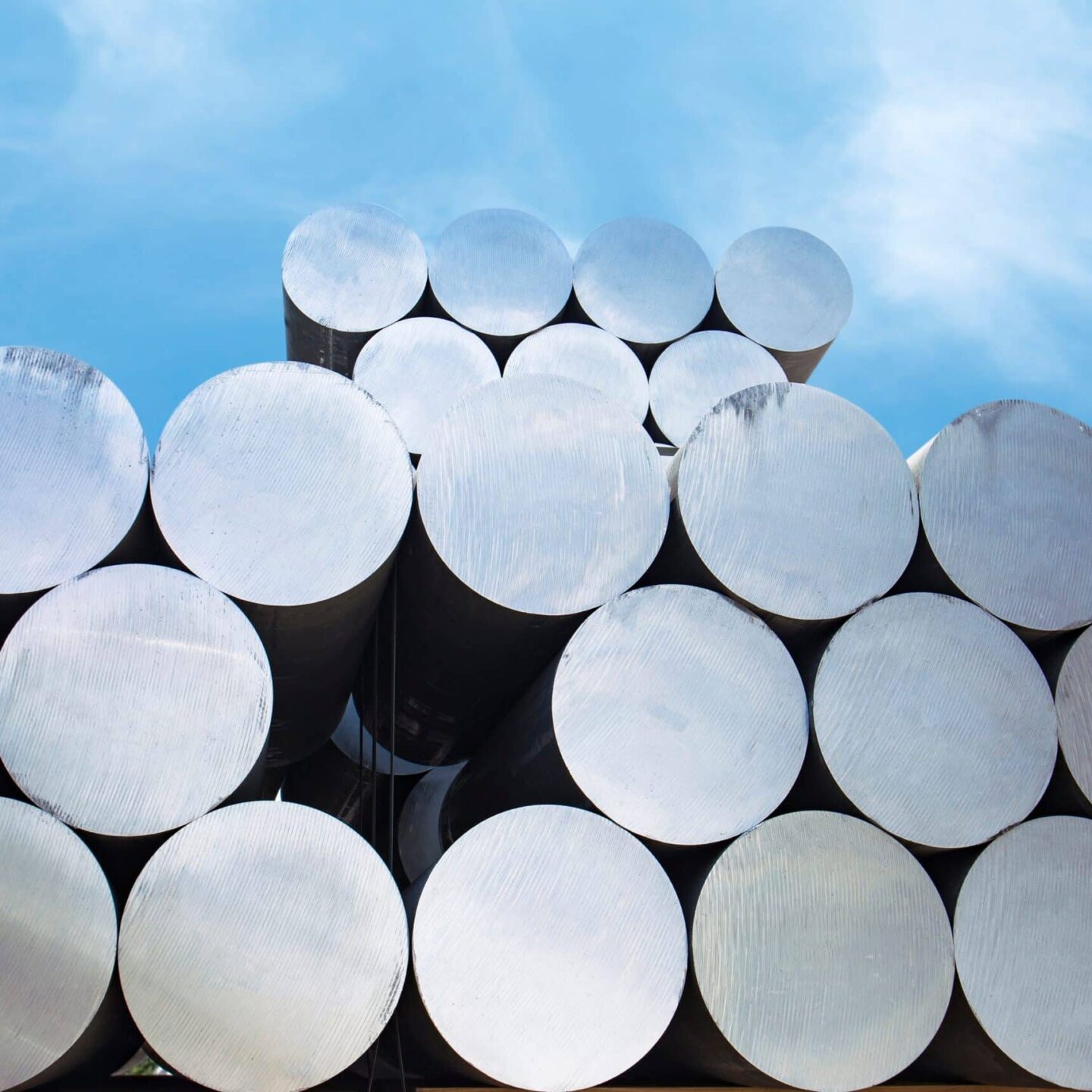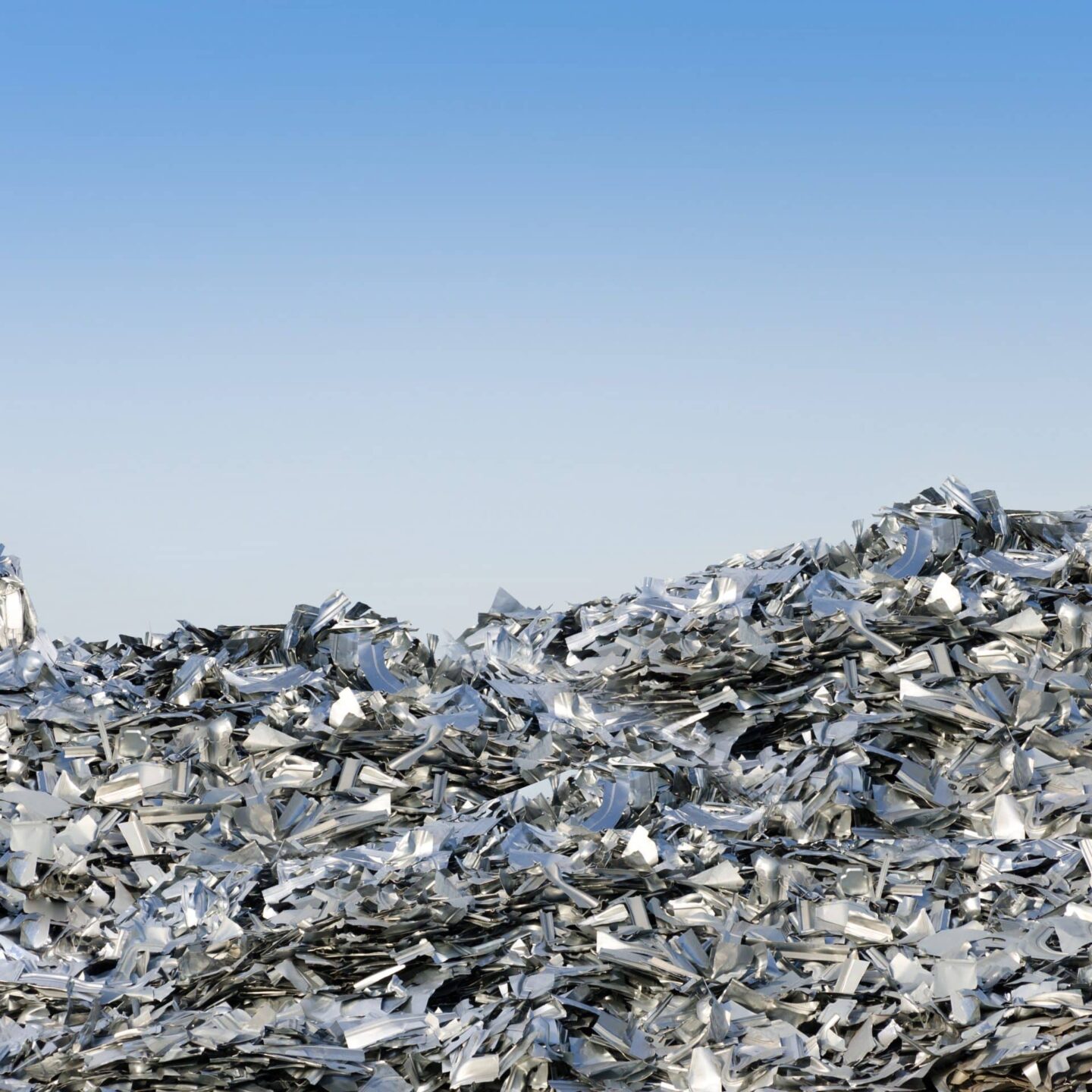Global study reveals aluminium cans achieve highest collection-for-recycling and recycling rates among beverage containers
Belém, Brazil, 11th November 2025
At COP30 today, the International Aluminium Institute (IAI) announced that aluminium beverage cans achieved a global recycling rate of 75% in 2023, a major milestone in the industry’s drive toward full circularity.
The achievement brings the sector more than halfway toward the Global Beverage Can Circularity Alliance (GBCCA)’s goal of 80% recycling by 2030, first established at COP28.
The milestone is highlighted in a new global study providing the most comprehensive analysis of beverage packaging recycling ever undertaken. Commissioned by the Global Beverage Can Circularity Alliance (GBCCA) and conducted by Eunomia Research & Consulting, the report compares recycling rates for aluminium, glass and plastic (PET) beverage containers across 35 countries, including Europe as a single market. Together, these regions represent 90% of the global aluminium market, 88% of PET and 84% of glass.
“This milestone shows real progress in keeping aluminium in circulation and out of landfills,” said Marlen Bertram, Director, Scenarios & Forecasts at the International Aluminium Institute (IAI). “Reliable, consistent data is essential to strengthen recycling systems worldwide, and COP30 gives us a vital chance to engage policymakers on this. Too many regions still lack accurate recycling data, a gap we must close through stronger cooperation between governments and industry. Greater transparency will help pinpoint where improvements are needed, boost recycling efficiency across all materials, and demonstrate what’s possible when the entire value chain works toward true circularity.”
The study aims to follow the EU’s calculation point for recycling, as defined in Commission Decision 2005/270/EC. It forms part of a three-year programme to improve global understanding of recycling performance, harmonise data definitions and enhance the quality and transparency of reported figures.
Key findings include:
- Aluminium achieved the highest global recycling rate at 75%, surpassing PET (47%) and glass (42%).
- Aluminium demonstrated strong performance even in regions with less developed waste management systems, underscoring its inherent circularity and high material value.
- Regional results showed exceptional outcomes for aluminium, with recycling rates reaching 94.6% in East Asia and the Pacific and 94.0% in Latin America and the Caribbean – significantly higher than rates recorded for other materials and regions.
“At Crown, sustainability is at the core of everything we do – from how we design, to where we operate, to the partners we work alongside,” said Sandrine Duquerroy-Delesalle, Vice President of Global Sustainability & External Affairs at Crown Holdings. “Reaching a 75% global aluminium recycling rate marks a significant step forward for our industry and for the circular economy as a whole. It’s especially meaningful to share this milestone here in Brazil where we have a strong presence. Brazil’s leadership shows that a social and inclusive circular economy can empower waste workers and achieve world-leading recovery of the most valuable recyclable material”.
Andy Grant, Technical Director at Eunomia, said: “This study reinforces the need for continuous improvement in recycling infrastructure and policy. Governments and industry players alike have an important role to play in boosting the efficiency of recycling systems, not only for aluminium but for all materials. With better data, we can set more effective targets, monitor progress, and ultimately close the recycling gaps around the world.”
While all materials present opportunities for improvement in collection and recycling efficiency, aluminium cans remain the most recycled single-use beverage container globally. This strong recycling performance, combined with the aluminium industry’s commitment to advancing closed-loop, can-to-can recycling, is paving the way toward a truly circular economy for aluminium beverage cans.
Ramon Arratia, CSO at Ball Corporation, said: “As a global leader in sustainable aluminium packaging, Ball believes in the environmental, economic and social value proposition of circularity, and is committed to advance can-to-can recycling. In Brazil, a leading market for Ball’s operation in South America, the average recycling rate of aluminium beverage cans has been 98% for the past 15 years. This is the result of aluminium’s high circularity value that has, but also of the work of the more than 800 thousand waste pickers collecting cans across the country for recycling. They play a major role in recycling in the Global South, which reminds us of how critical a fair transition in our value chains is.”
Additionally, the research also reveals:
- Substantial regional disparities in collection-for-recycling rates, reflecting differences in waste management systems, collection infrastructure, and policy environments.
- Significant challenges in obtaining a complete global picture of recycling performance. Data gaps in recycling reporting proved to be a significant issue, with:
- 13 countries missing aluminium recycling data
- 10 missing glass data
- Six missing PET data
- 24 countries were rated as having poor data quality or no data at all for aluminium, compared to 28 countries for glass and 25 for PET
These discrepancies underscore the urgent need for improved data collection and transparency.
Francisco Pires, Senior Vice President and Chief Strategy & Sustainability Officer at Novelis, said: “As the world’s largest recycler of aluminum beverage cans – recycling more than 84 billion a year – circularity is core to Novelis’ business. As such, we continue to invest in expanding our recycling footprint and capabilities and are poised to support increases in consumer recycling around the globe.
The GBCCA’s long-term vision extends beyond the 2030 target of achieving 80% recycling of aluminium beverage cans, aiming for near 100% recycling by 2050. This ambition reflects the industry’s commitment to fostering greater collaboration, enhancing recycling systems, and optimising resource efficiency as part of aligning to the lnternational Energy Agency’s Net Zero 2050 scenario. To achieve this target, the study has the following recommendations:
- Enhance data collection and transparency to further optimise recycling systems and foster greater industry collaboration.
- Establish national and/or state-level recycling targets for aluminium beverage cans.
- Formulate policies to help achieve these targets and enhance the quality of collected used beverage cans.
- Collect and publish data on aluminium beverage can recovery rates to monitor progress.
Midori Narita, Executive Officer, the Leader of the Corporate Sustainability Promotion Division of UACJ Groupsaid: “We are very proud to know that Japanese recycling rate of aluminium can reached about 99% in this study. Due to infinitely recyclable nature of aluminium, used beverage cans are being sorted and collected in society. In order to achieve higher can to can ratio, UACJ corporation maintains continuous effort to develop recycling technologies and investment in facilities in the US, Japan and Thailand.”
ENDS
NOTES TO EDITORS
Table 1: Recycling rate of aluminium, glass, and PET beverage containers by region, 2023
| Aluminium | Glass | PET | ||||
| Region | Recycling Rate | Number of Countries Figure Based On | Recycling Rate | Number of Countries Figure Based On | Recycling Rate | Number of Countries Figure Based On |
| Middle East and North Africa | 58.7% | 4 | 37.8% | 3 | 40.4% | 2 |
| Latin America and Caribbean | 94.0% | 4 | 25.5% | 5 | 49.0% | 6 |
| East Asia and Pacific | 94.6% | 8 | 41.9% | 9 | 57.7% | 10 |
| North America | 45.3% | 2 | 28.4% | 2 | 22.0% | 2 |
| Sub-Sharan Africa | 60.6% | 1 | 20.6% | 2 | 28.6% | 3 |
| South Asia | 83.9% | 1 | 57.7% | 1 | 63.6% | 2 |
| Europe and Central Asia | 72.5% | 2* | 62.2% | 3* | 47.0% | 4* |
*Europe counted as one ‘country’
Table 2: Collection rates and recycling rates for aluminium cans, glass bottles and PET bottles, 2023
| Beverage Container Format | Collected for Recycling Rates (%) | Recycling Rates (%) |
| Aluminium Beverage Cans | 75.6% | 74.8% |
| Glass Bottles | 44.5% | 41.9% |
| PET Bottles | 61.3% | 47.0% |
Media Enquiries
IAI: media@international-aluminium.org
About the International Aluminium Institute
The International Aluminium Institute (IAI) is the only body representing the global primary aluminium industry. The IAI has the most comprehensive global data on aluminium with more than 50 years of analysis on production, consumption, energy use and environmental impact. For more information, visit www.international-aluminium.org, or connect with us on X and LinkedIn.
About Global Beverage Can Circularity Alliance
The Global Beverage Can Circularity Alliance (GBCCA) is an industry-led coalition established during COP28 to drive recycling solutions across the entire beverage can value chain. Its members include major aluminium producers, beverage can manufacturers, and recycling companies. It is focused on advancing can-to-can recycling as a cornerstone of a net-zero future, with ambitious goals of achieving 100% recycling by 2050 and an interim target of 80% by 2030. Find out more: https://international-aluminium.org/landing/global-beverage-can-circularity-alliance/
About Eunomia Environmental Research & Consulting
Eunomia Research & Consulting (Eunomia) is a global sustainability consultancy dedicated to delivering evidence-based and practical solutions that address the world’s most urgent sustainability challenges, with a focus on circular, low-carbon and natural economies. Visit eunomia.eco.





